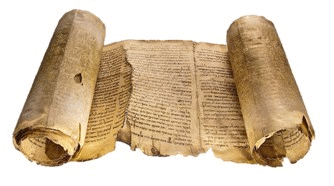The gift of prophecy
Publish date 29-08-2020

Before speaking of the prophetess Culda it seems appropriate to define the figure of the prophet common to the three monotheistic religions. The prophet (nabi in Hebrew) speaks in the name of God. Called and sent, obeying what the Holy Spirit inspired him, he observes the present by foreseeing its consequences in the light of the Word of God. He signals the presence and will of God in history. , regarding the circumstances that he finds himself living in.
We are in the time of King Josiah who succeeds Manasseh, a king who in the 55 years of his reign had done "what is evil in the sight of the Lord" by diverting the hearts of the people from God towards the worship of idols. Josiah, who became king at the age of eight, "did what was right in the sight of the Lord," engaging in the purification of all that had defiled the worship of the true God. In the eighteenth year of his reign, while the rebuilding proceeded of the Temple, the Book of the Law was found (Deuteronomy according to some scholars). The scribe Safan read it before the King who "heard the words of the Book and tore his clothes", learning of the anger of the Lord for the great disobedience of the people who had turned away from what had been "written for them". He ordered his collaborators to consult the Lord in the light of that amazing event.
The men turned to Culda, a prophetess in Jerusalem, wife of Shallum son of Tikvah (hope) the king's keeper. We know very little about it, but the fact that the king's messengers addressed her - while the prophets Jeremiah and Zephaniah were working - leads us to believe that she had a particular authority. This is confirmed by the authority with which he relates the message of God announcing a great calamity on Jerusalem, due to the sin of its inhabitants who had abandoned YHWH to burn incense to idols.
This terrible prophecy of doom for the people is accompanied by words of hope for the king who, deeply saddened by what happened, had done penance. God promised him that he would die in peace without seeing the calamity that would befall his people. In fact Josiah was seriously wounded in Megiddo in the battle against Pharaoh Neco and transported to Jerusalem, where he will die in peace and be buried in the royal tomb. The words of reproach for the people are accompanied by words of hope for the king.
The hope of the prophetess Culda is still remembered today by the two gates in the southern part of the Temple that bear her name. The faithful pass through them to access the 1,500-meter tunnel that leads to the Temple Mount. They come in and out in a definite order which is reversed for those who are in mourning; this inversion signals people who need help and consolation. The words of hope with which the prophetess Culda accompanies the king, struck by the disobedience and idolatry of his subjects, are the same that we need today.
(2Ki 22,11-20; 2Ch 34,22-28)
Anna Maria del Prete
NP may 2020







